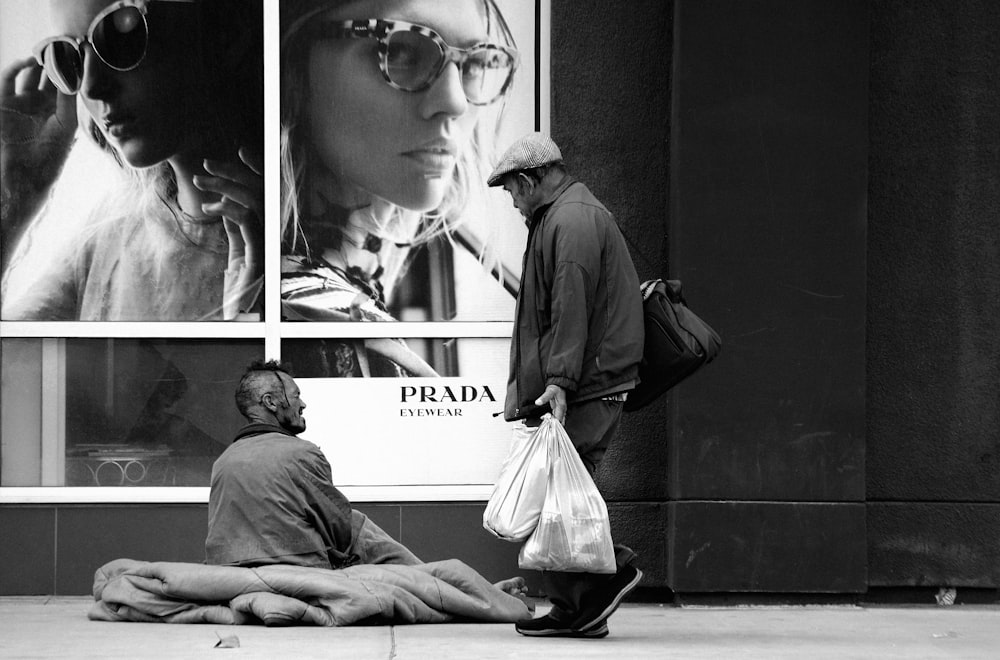We Are Not Born Equals
Pondering the genetic lottery and the hopeless effort to reconcile egalitarianism with justice.
Building a commitment to egalitarianism on our genetic uniformity is building a house on sand.
—Paige Harden, behavioral geneticist
Paige Harden is a University of Texas-Austin behavioral geneticist who does not deny that inborn determinants of IQ or talent can result in unequal social outcomes. Yet Harden considers herself a progressive. In certain quarters, reconciling hereditary dispositions with egalitarianism is a hard circle to square.
So many on the progressive left deny the science when it comes to inborn differences. Denial turns to outrage if any researcher dares to study IQ as a factor in explaining the distribution of opportunities in market economies, for example. It’s taboo–especially as much of America is preoccupied with a story that says social inequities result from systemic racism and “white supremacy.”
It’s bad enough that infamous classical liberals such as Charles Murray have used stats around IQ differences to argue against various redistributive policy measures. To avoid being painted as Bell Curvers, most progressives reflexively adopt blank-slate theories of intelligence and behavior.
The intellectually honest among them realize that progressives were once eugenicists who twisted Darwin’s insights into something insidious. It’s no wonder modern progressives want to distance themselves from that dark history.
But there is a big difference between respecting evolution’s handiwork and being a eugenicist.
When physicist Stephen Hsu claimed IQ went far in explaining unequal social outcomes, he found himself embroiled in a controversy that threatened his career. Somehow, Harden, herself a winner of the natural lottery, has found a way to evade such controversies. How? By reconciling the facts of genetic differences in ability with the values of political egalitarianism. She thus remains a rising star in the academy, anointed by the mainstream press.
According to this sweet write-up about Harden in The New Yorker,
The perspective of “gene blindness,” she believes, “perpetuates the myth that those of us who have ‘succeeded’ in twenty-first century capitalism have done so primarily because of our own hard work and effort, and not because we happened to be the beneficiaries of accidents of birth—both environmental and genetic.” She invokes the writing of the philosophers John Rawls and Elizabeth Anderson to argue that we need to reject “the idea that America is or could ever be the sort of ‘meritocracy’ where social goods are divided up according to what people deserve.”
When I first saw the title of Harden’s book, The Genetic Lottery, John Rawls’s political philosophy immediately came to mind. Rawls refers to the “natural lottery,” a conception that includes both inborn talents (nature) and silver spoons (nurture).
Then again, Rawls’s critics come to mind, too. More on that later.
From the quote above, I don’t want to assume that Harden wants to derive a value from a fact. Hume was right to caution us against such problematic reasoning. I will instead assume that Harden is aware of fact/value distinction and can avoid making gross philosophical errors.
I will focus on what appears to be the substance of her Rawlsian Reconciliation Thesis (RRT for short). In that thesis, I read Harden as saying that, far from disqualifying egalitarian redistribution, inborn differences in ability are arbitrary. Such arbitrariness creates a kind of cosmic unfairness: Some people are born to win, and some are born to lose. So, authorities should set policies that provide more support for the losers at the expense of the winners.
The Lottery and Human Choices
The first thing we must say about the RRT is: Be more specific. Successful people are not merely the beneficiaries of accidents of birth. They’re born with aspirations and agency, too, but these don’t automatically translate into success. Talented people almost always have to expend effort both to cultivate their talents and then to succeed. To convert opportunities into success, one has to apply her talents, which is not only work—it’s a choice. That means failure to apply her talents is a choice, too. That’s why we must consider not just one’s aspirations but also her agency.
In a market economy, being smart isn’t everything. Just because you could get a Ph.D. in x doesn’t mean you create value for others. (Many Most PhDs don’t create enough value to justify their salaries.) You know you create value for others when someone rewards you with their resources, not someone else’s. If someone values your time, talent, and work more than the resources they’re willing to pay—and of course, you’re willing to work—a transaction will occur. Otherwise, it won’t. And it doesn’t matter what talents you possess. In collaborative arrangements like those in an open market, people must choose to act or not. And such choices must be made on both sides of an exchange.
Now, I assume it’s not controversial to claim that one must expend effort to succeed, talent notwithstanding. It’s also clear that to expend effort is a choice. What if all the most talented people in the world chose not to expend effort? What if, for whatever reason, they all preferred leisure? Meditation? Some genetic lottery winners do, in fact, make such choices. Should they be conscripted into applying their talents and expending their effort? After all, if someone like Harden thinks that the Monopoly Violence Corporation (the US Gov’t) is justified in taking a portion of people’s earnings to help the genetic lottery losers, then why shouldn’t state authorities force lazy genetic lottery winners into work camps?
One might respond that compulsory redistribution differs from forced labor in critical respects. Perhaps. But that difference doesn’t address the problem of someone choosing not to exercise her talents. Specifically, it seems morally dubious that, under the RRT, the authorities should leave the lazy lottery winners completely alone while penalizing the productive lottery winners for their productivity. After all, a tax is a penalty, a disincentive. The more you earn, the more you lose—whether the tax is flat or progressive. And The Monopoly Violence Corporation gives you no say in the matter —well, except not to work at all. And for this latter choice, you will be rewarded under the RRT at the expense of working earners.
Social justice is a curious thing.
Now, About the Violence
Of course, we must keep in mind that to be comfortable with wealth redistribution is to be comfortable with violence. There is no way to redistribute resources according to some ideal without a willingness to commit to someone threatening violence and being willing to go through with that threat. Yet anyone with a moral scruple should be concerned about using violence, mainly as the state is a fundamentally violent organization. It can’t exist without it. Progressives hate it when you point this out, but the state is nothing more than the institutionalized threat of violence.
Legal Mafias and Moral Asymmetries
[T]he state originated as a protection racket. - James C. Scott, from Against the Grain A powerful mafia takes over a small country. They tell everyone in the country they must pay a percentage of surpluses to the mafia’s goons. If they pay up, the goons will protect them from other gangs. If they don’t, goons will return with gun…
And that brings me to one of the most devastating critiques of the RRT to date.
In Anarchy, State and Utopia, philosopher Robert Nozick offers a chapter on distributive justice called “How Liberty Upsets Patterns.” Nozick shows that you cannot have a theory of distributive justice based on a specific, ideal pattern of wealth distribution and give people agency on how to allocate their property. If he were still alive, Nozick might have prompted Harden to assume that her preferred distribution exists and that people can use some portion of their income as they see fit.
Suppose the people all want to buy Rihanna’s albums, which will make Rihanna richer and her fans poorer in monetary terms (though musically richer, of course). As soon as they do so, the distribution becomes less than ideal.
Nozick reminds us that any freedom to dispose of one’s income this way will constantly disrupt Harden’s ideal distribution. And, indeed, to push the distribution back to Harden’s ideal, the Monopoly Violence Corporation has to threaten people endlessly. Though we have become inured to such threats, that does not make them okay. Those who deny that threatening violence against innocent people is morally dubious must revisit their priors. Indeed, we can accept that Rihanna created neither injury nor crime against the fans who freely gave their money in exchange for her songs. Yet Harden seems to think Rihanna’s fans need to get some of their money back through coercive means simply because they weren’t born with her voice and talents.
Thus, Harden has to be comfortable with the idea of throwing Rihanna into prison (or worse) if the singer refuses to pay. Harden must sit comfortably with such violence to hold onto the RRT.
Cosmic Injustice
I will never be able to do behavioral genetics like Paige Harden. I will never be able to play basketball like Stephen Curry. I will never be able to build businesses like Jeff Bezos. I will never be able to sing like Rihanna. And I will never be able to do physics like Stephen Hawking. Many people can’t write articles as well as I do, but some can write them better.
When I read the work of Matt Ridley or Andrew Sullivan, I see their resplendence. On the face of it, it would seem as if there is some cosmic injustice in this. But if the economy were composed only of article writers, I would not think there is justice in taking from Ridley or Sullivan against their will. Indeed, I’d continue to upset Harden’s ideal distribution to join others in paying these excellent writers, even though they might get an extra zero at the end of every article they’re paid for compared to any sum I might fetch. To repeat: this would be my choice. One might say it ought to be my choice.
Am I missing some fundamental injustice the universe has dealt? Maybe.
But a greater injustice lies in constantly interfering in the lives of free people, whether those who won the genetic lottery or those who did not. We can remedy that injustice through a universal commitment to nonviolence. Most progressives have forgotten about such fundamentals, not to mention the value of authentic human compassion expressed through giving.
Maybe I’m just a dreamer. But I think nonviolence and compassion can motivate a million acts of kindness towards those born with less.
A version of this article appeared at AIER.






I think there's probably greater disagreement about what constitutes justice, than about what constitutes egalitarianism - though even the latter can be defined in a number of ways.